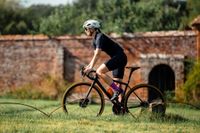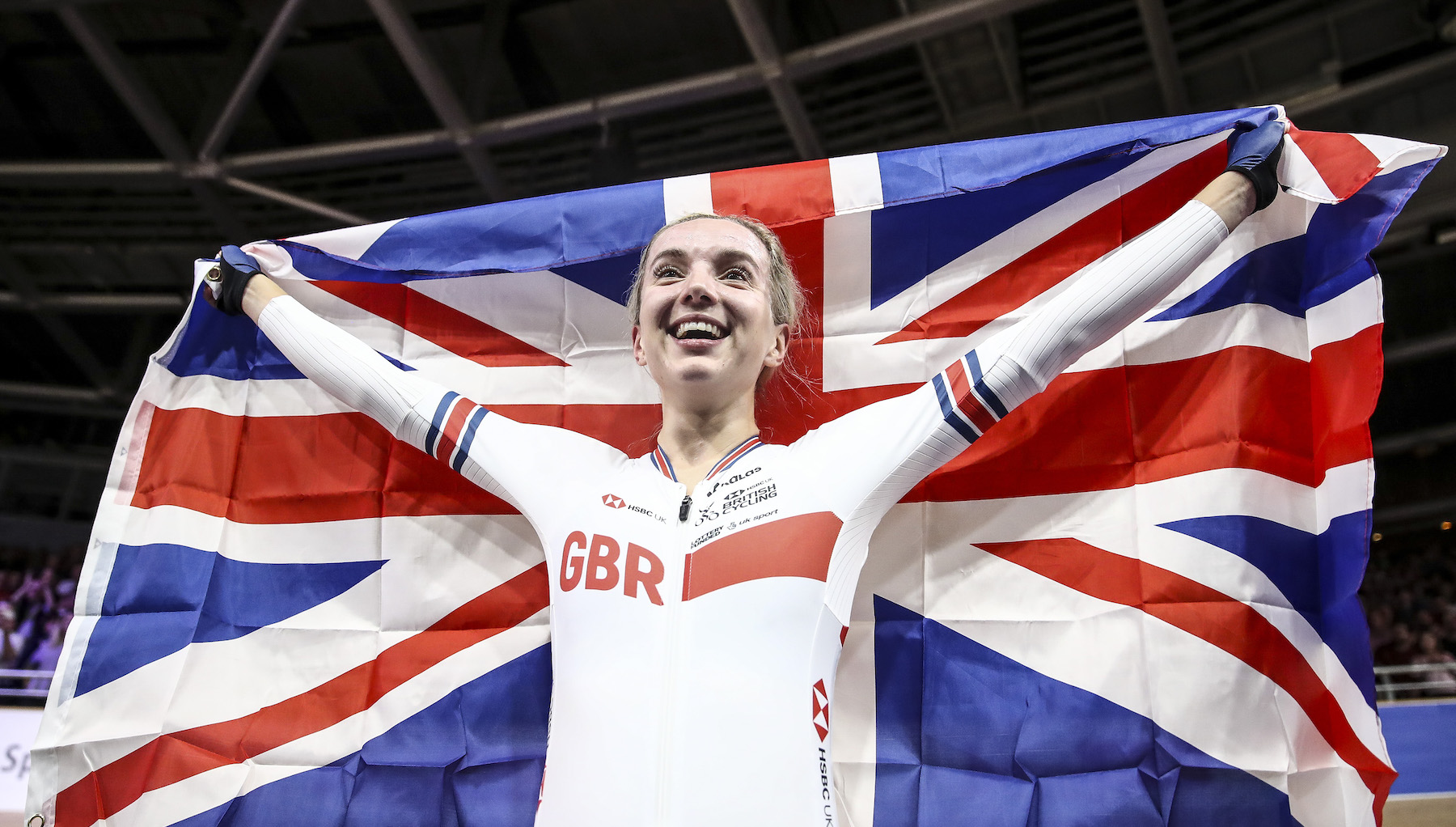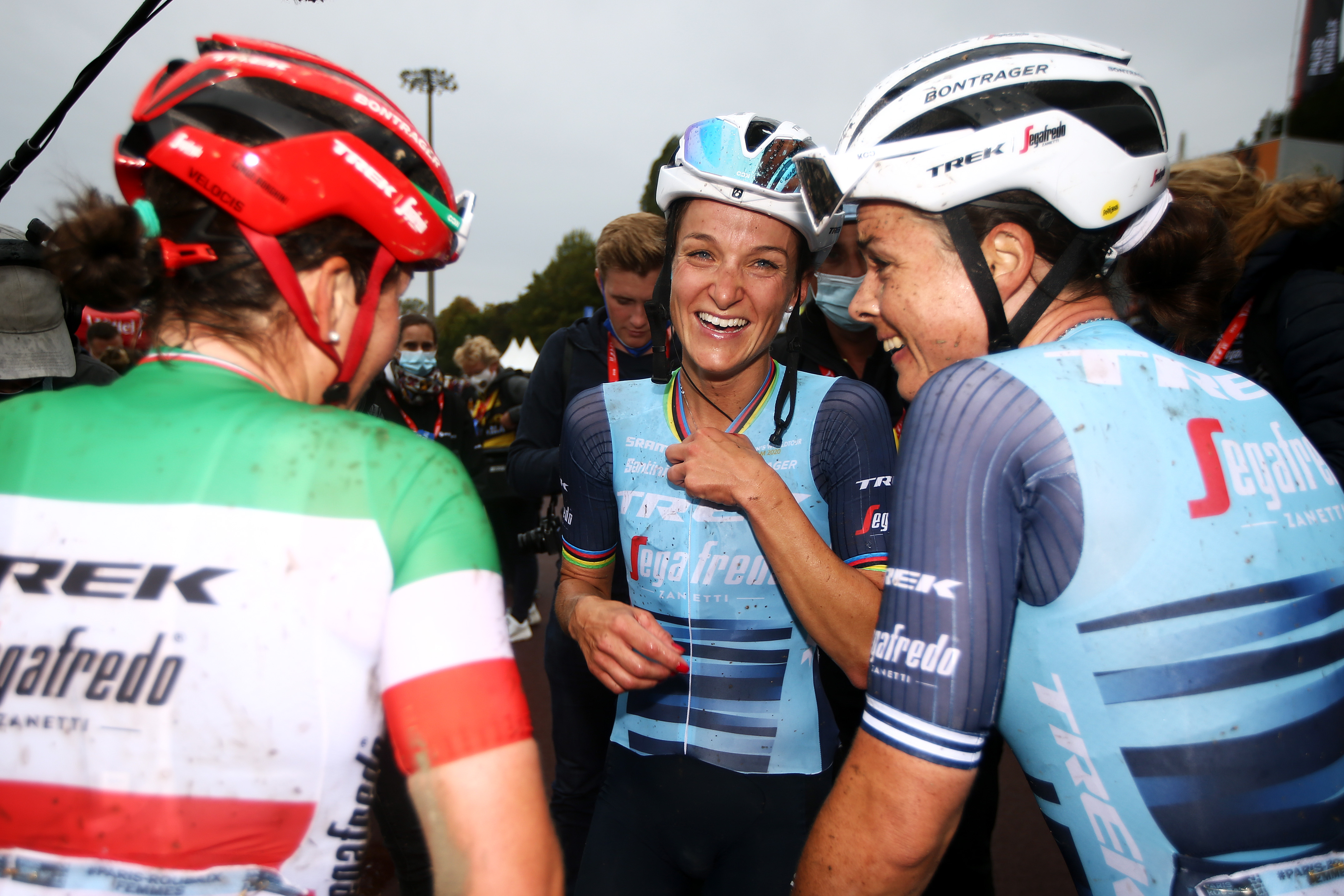‘There was just so much to learn and so little readily available information': Elinor Barker on life as a pregnant athlete
Barker's sentiments are extremely relatable, writes Cycling Weekly's pretty-pregnant-herself Tech Editor


“There was just so much to learn and so little readily available information,” Olympic track rider Elinor Barker has said of her search for information on training during pregnancy.
It's rare for an editor to interject. But being well into my second trimester myself, it's a sentiment I can relate to.
Barker found out she was expecting shortly after winning a silver medal at the Tokyo Olympics. The 27-year-old knew that this was not her cue for retirement.
“Instantly I knew I wanted to carry on, I’m not done with cycling, I feel far from that. And so from that point onwards, it was kind of about seeing what opportunities were still available to me as a pregnant athlete and later on as a mum,” Barker told BBC Sport.
Barker’s journey has featured plenty of disruption to previously well-rehearsed routines.
“I’ve kind of found ways to adapt, so either adapt physically what I’m doing, or literally my equipment, so my bike looks pretty horrific at the moment - just to try and actually make room for my bump,” Barker laughed.
“[I train] probably four times a week on the turbo, if I can do a couple of hours, I’m really happy with that, and when you're used to riding a few 100km every week, it’s a pretty big adjustment,” she added.
The latest race content, interviews, features, reviews and expert buying guides, direct to your inbox!
In terms of role models, the good news for women in all walks of life is that the list of mothers who have gone on to continue in successful careers is constantly growing. In sport, recent examples include Laura Kenny, Lizzie Deignan and Dame Sarah Storey.

“I think if you need inspiration on people who’ve come back from pregnancy to do incredible things, there’s a lot of that,” Barker says.
“But it’s very hard to find anything about what people were doing while they were pregnant.
"Trying to just speak to as many people as I possibly could, so that was athletes, physiologists, coaches, and get as much of that information as I could to try and make my own decisions, was really quite a long process because there was just so much to learn and so little readily available information.”
We already exist in a world where women’s bodies are excluded from the majority of sports science trials, with experts concluding that hormonal fluctuations make our physiology “too complicated” to study. Add in the ethical barriers around monitoring pregnancy, and the fact that each pregnancy is unique, and you’ve got the perfect conditions for a knowledge vacuum.
The pool of information is growing, however. It was Barker’s own advice that alerted me to the importance of monitoring heart rate, especially in the first trimester. Whilst the NHS advice remains, “you should be able to hold a conversation as you exercise when pregnant,” for athletes used to training according to zones and targets, a solid number is a welcome reassurance.
Bearing in mind most women in the UK won’t see a midwife until they’re around 8-weeks into their journey, every morsel of information is valuable - and of course, I’m hoping to bring my own guide to Cycling Weekly, by way of a feature published later in the year.
A post shared by Elinor Barker (@elinorbarker)
A photo posted by on
Every day is different. Asked how she was balancing life as a mum-to-be, and an elite athlete, Barker laughs: “Well some days, really badly other days.”
Barker - who has signed with Uno-X for the coming road season - has some ambitious plans, but she’s prepared for every eventuality.
“I’ve got a Plan A, and then a Plan B, Plan C, Plan D.. because everybody who I've been working with who is a parent has said you can’t actually plan these things as well as maybe you think you can.
“My plan A does involve some racing this year, which is possibly a little bit ambitious, but I think I want to be back in races so that when I am actually physically back to full fitness, I’ve got those experiences in recent history that I can draw upon.”
Attitudes to what options are available to women after having children are rapidly changing, and that’s a fact not lost on Barker (or, indeed, myself).
“I think what's so interesting is how quickly things are changing,” she asserts. “It’s not that normal yet in sport - but it’s pretty close to being normal. And I certainly think that now, it’s not an automatic reaction that if you’re pregnant, that's it.
“You don't need to fit in your whole career before you have children.” Amen, to that.
Michelle Arthurs-Brennan the Editor of Cycling Weekly website. An NCTJ qualified traditional journalist by trade, Michelle began her career working for local newspapers. She's worked within the cycling industry since 2012, and joined the Cycling Weekly team in 2017, having previously been Editor at Total Women's Cycling. Prior to welcoming her first daughter in 2022, Michelle raced on the road, track, and in time trials, and still rides as much as she can - albeit a fair proportion indoors, for now.
Michelle is on maternity leave from April 2025 until spring 2026.
